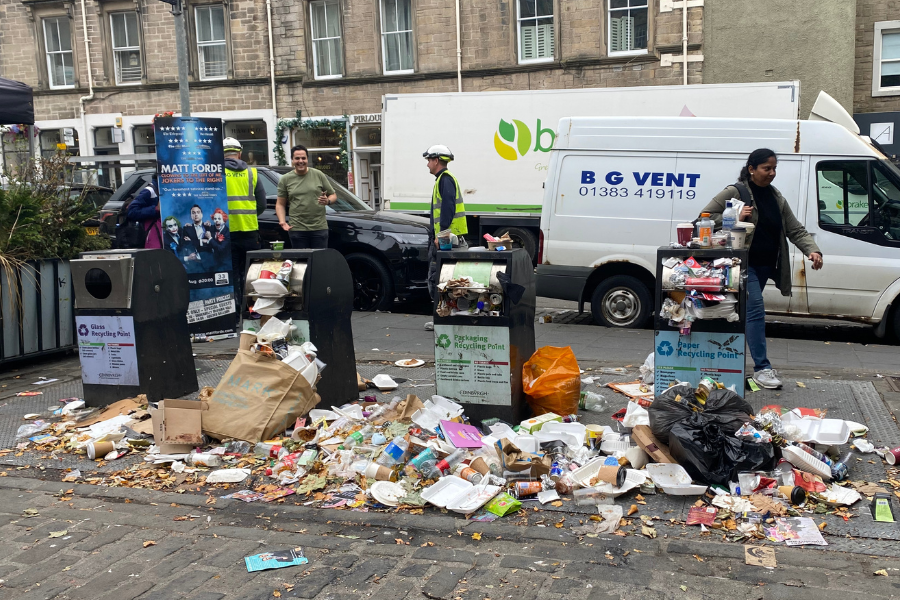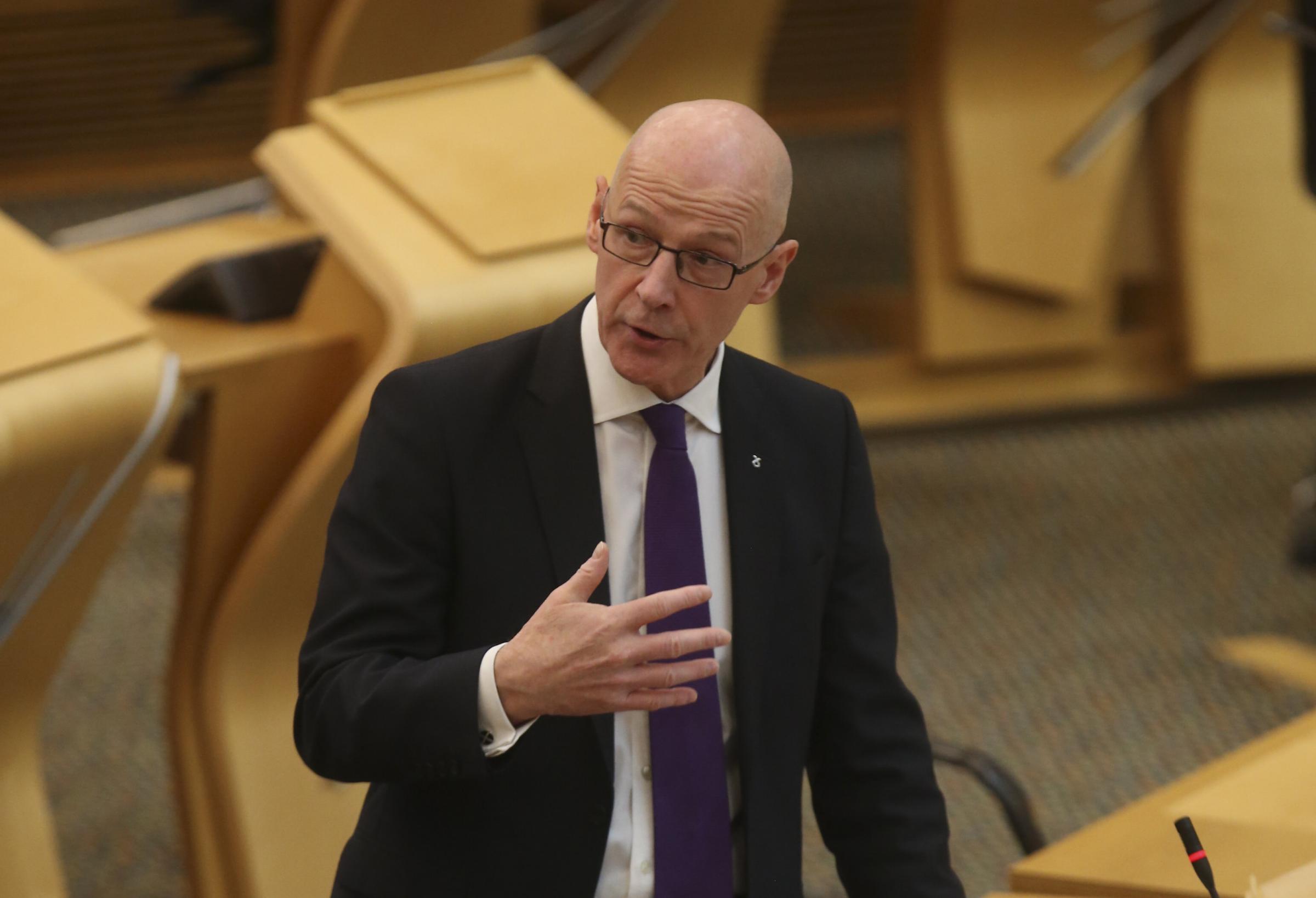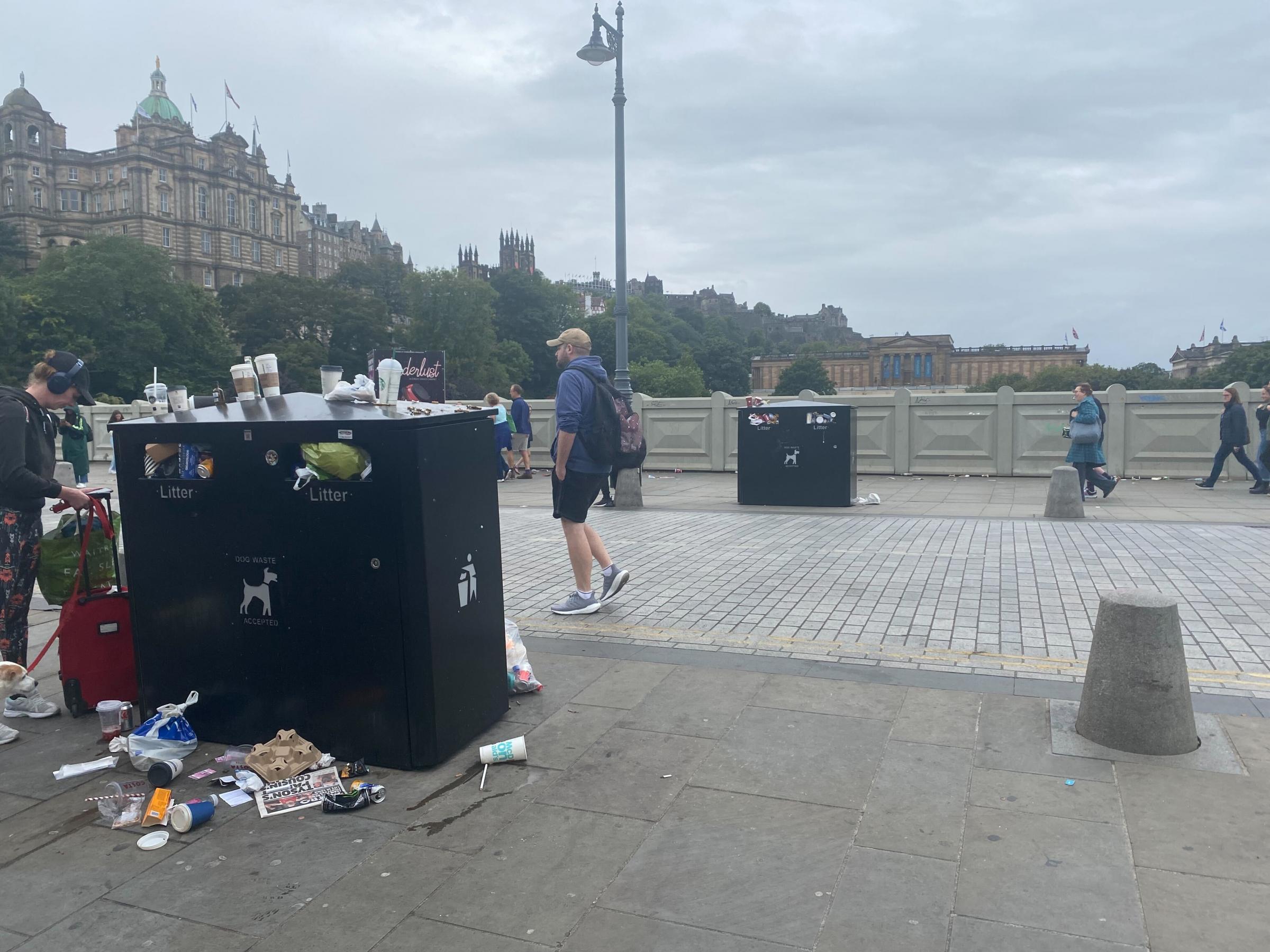
DEPUTY First Minister John Swinney has criticised Labour and Tory Cosla members for “not grasping the seriousness of the situation” over the ongoing bin strikes.
The local authority body, which is chaired by council leaders from Scotland’s 32 local authorities, last week voted to put a 3.5% pay offer on the table for cleansing workers.
Unions swiftly rejected the offer, which has led to industrial action across the country, kicking off in Edinburgh where photographs of rubbish-filled streets and overflowing bins shocked the country during the busy festival season.
And, as further industrial action kicks off in other councils across Scotland, including Glasgow, Aberdeen and Dundee, the Deputy FM has said the current situation is a matter of “serious concern”, but added he wants to see it resolved.
Probed on the Scottish Government’s role in the negotiations, Swinney said that he was “frustrated” by Labour and Tory council leaders voting through the 3.5% offer in the first place, when the Scottish Government had already fronted up the cash to allow them to go to 5%.
Swinney added that despite handing over £140 million to local government, it would not be a “pain-free exercise” and warned cuts would have to come from elsewhere, as the Scottish Government operates with a fixed budget.
Speaking in Edinburgh, Swinney said: “One thing that is frustrating is the fact that Cosla did not immediately engage in discussions with trade unions about a 5% offer when I put the money on the table to enable that to happen.

“That happened because a majority of Cosla leaders voted against an SNP proposal to offer 5%.
“That would have given another week for dialogue taking place, a critical week in advance of the Edinburgh cleansing dispute.
“So the point of legitimate criticism of local government, in my view, is the Cosla leaders response to what they asked for. They got £140 million.
“Because of the votes of non-SNP leaders in Cosla, putting off that offer to employees was delayed by a week.
“I think that was a critical week in timing, and I'm not at all surprised that unions are annoyed and frustrated by it.
“I think if non-SNP local government leaders had grasped the seriousness of the situation and the urgency and the response to it financially, maybe we'd be in a better place.”
Unions, which are demanding urgent talks with Swinney, want the Scottish Government to step in and find more cash to resolve the pay dispute.
Wendy Dunsmore, of Unite, said Scottish ministers needed to match the £1925 pay rise being given to local government workers in the rest of the UK.

Dunsmore told BBC Radio Scotland: “Our first wave was in Edinburgh, the second wave is waste across Scotland, our third wave is going to be schools.
“And it may not stop at schools, we’re in here for the long haul.”
She added: “Our members are demanding a better pay rise, and who knows where we are going to go next?
“We’re looking for a winter of discontent, even though we’re just approaching autumn.”
First Minister Nicola Sturgeon has already made clear the Scottish Government does not have a “bottomless pit of money” to resolve the dispute.







